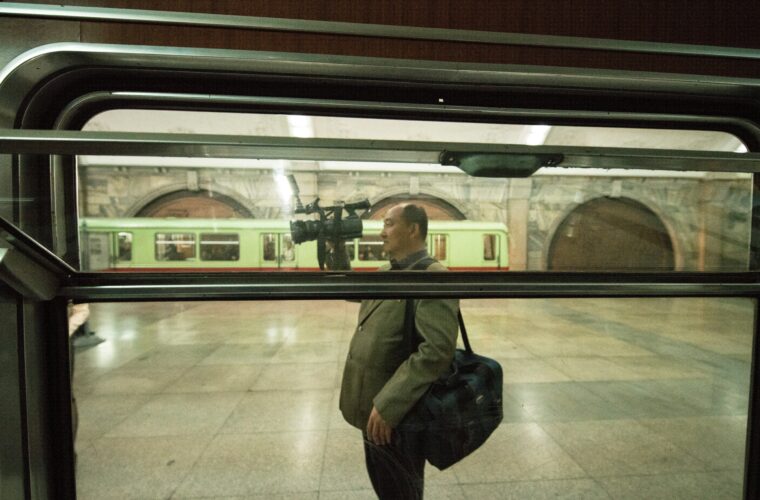Twitch to leave South Korea due to ‘prohibitively expensive’ costs
Video streaming platform Twitch announced its plan to exit South Korea on February 27, leaving many viewers and livestreamers to find a service that can replace it. In a blog post in December 2023, Twitch CEO Dan Clancy said that the platform decided to close the business in the country due to operational costs being “prohibitively expensive”.
Internet fees, also known as network usage fees or internet usage taxes, charged by the local internet service providers, are suggested as one of the causes that increase business costs for big techs in South Korea. Clancy explained that the network fees in South Korea are “10 times bigger” than in other countries.
What Is the ‘Network Fee’?
For the past few years, there has been an ongoing controversy over network providers charging foreign video platforms for network usage in South Korea. Korean companies claimed that video platforms cause traffic disruptions, leading to extra server maintenance costs, and local content providers have been paying while foreign companies do not.
In 2016, the Ministry of Science, ICT and Future Planning introduced regulations that mandate content providers to pay for additional costs from increased internet traffic. Telecommunication companies said that the costs are calculated by the volume of traffic in the country, changing depending on which content platforms they are contracted with.
Big services like Google and Netflix, whose share of traffic usage in the country was 27.1 per cent and 7.2 per cent between October and December 2021, have been asked to pay such fees to telecommunication companies. In 2020, Netflix filed a lawsuit against SK Broadband, one of the three biggest internet service providers in South Korea, saying that it had no legal obligation to pay such fees. However, the Seoul Central District Court ruled in favour of the Korean company.

New Homes for Twitch Streamers?
South Korea has a huge esports community, with most younger generations identifying themselves as “esports fans”. Twitch has been accommodating such demand with live streams of game plays or other niche communities like virtual creators. A September 2022 report said Twitch had more than 1 million daily active users nationwide.
Twitch streamers have been looking for other services to replace the platform. Two of the biggest platforms mentioned by established streamers are local platforms, CHZZK and AfreecaTV.
Twitch South Korea
CHZZK is a video platform made by South Korea’s first web portal, Naver. Shortly after Twitch announced that it would close its business, Naver launched the beta service of CHZZK.
Unlike Twitch — which downgraded their streaming resolution from 1080p to 720p and removed the video-on-demand service to save traffic costs in the country last year — CHZZK offers a 1080p and 60fps resolution and VOD archives of channels. Through the platform’s partnership with Twitch, some parts of users’ membership history and subscription benefits on Twitch can be transferred to CHZZK.
On the second day of beta service, CHZZK ranked the most downloaded app on the App Store and Google Play Store. From December 19 to 30, the platform garnered an average of 370,000 daily users, which is a good start for a newly launched streaming platform. In the same period, Twitch recorded about 600,000 users on average.
AfreecaTV, on the other hand, is a platform that started its streaming business in the early 2000s. It has been the second biggest streaming service following Twitch, with Twitch outnumbering AfreecaTV’s DAU by far. When Twitch scaled back its service, prompting some Twitch streamers to migrate to AfreecaTV, the platform’s DAU increased. During the 2022 FIFA World Cup, AfreecaTV surpassed Twitch’s DAU for the first time.
Twitch’s decision to exit was good news for AfreecaTV, too, especially with popular streamers joining its platform. Woowakgood, a gaming creator with the most followers on Twitch, said he will move to AfreecaTV when Twitch is officially closed. Another big creator, Oking, also plans to continue streaming on AfreecaTV.
What’s Next for Foreign Content Providers?
Despite Twitch’s decision to exit, the government has not launched any practical solutions to high network usage fees. On December 18, Lee Jong-ho, the chief of the Science and ICT Ministry, said he hopes “big techs to devise ways to not burden the consumers” to a question about network costs internet providers charge.
Given that the government is not showing a progressive reaction to Twitch’s closure, international tech companies that refused to pay for internet costs, like Google, may face more pressure from politicians and telecommunication companies to open their wallets.


